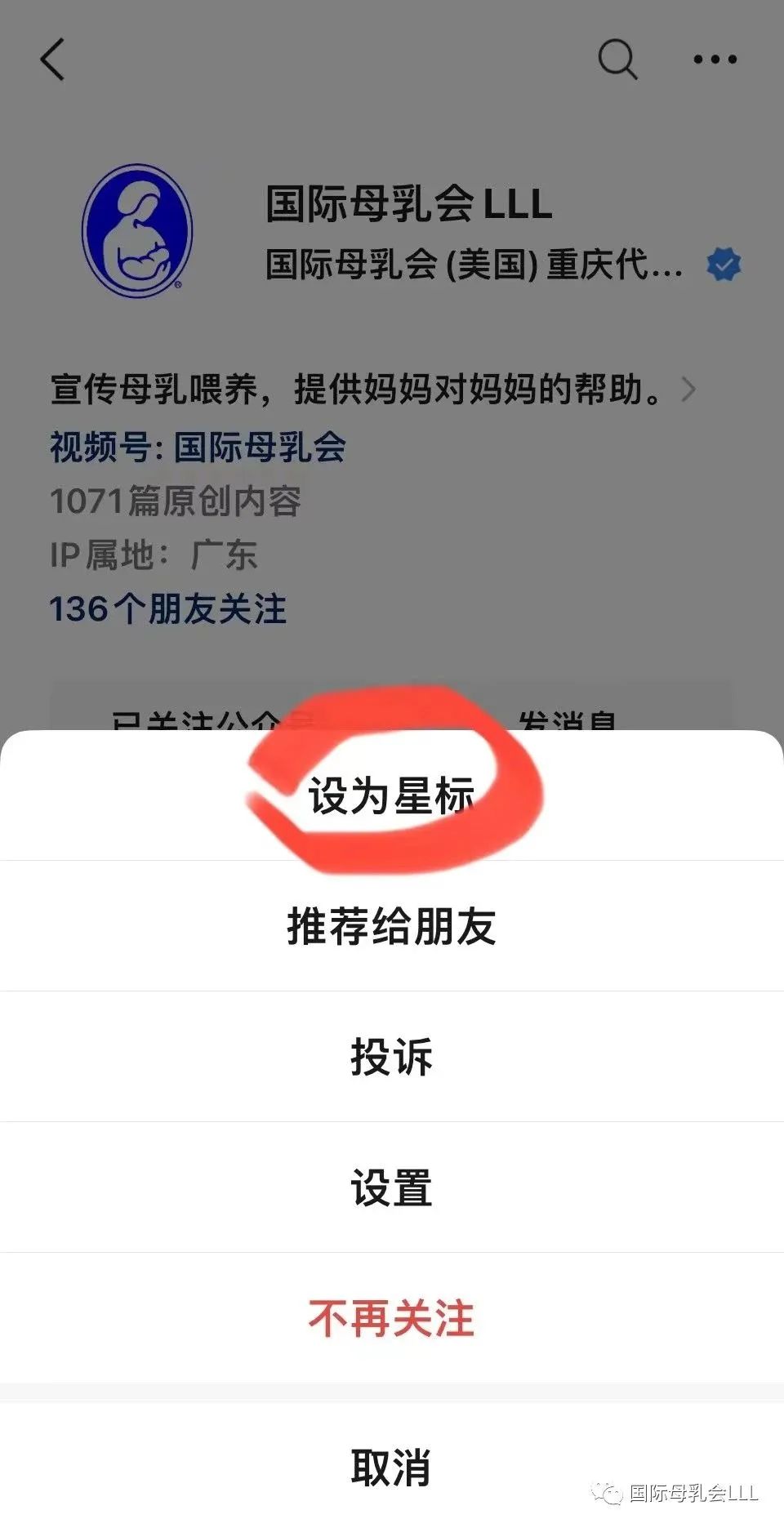


伴侣和其他亲人往往很难知道该如何帮助哺乳期的母亲。虽然喂养关系存在于母亲和宝宝之间,但伴侣和其他人也可以做许多事情来给予支持。
对于哺乳期妈妈来说,有一个可以一起庆祝小胜利的伴侣、家庭成员或朋友会有很大的帮助。比如,宝宝能舒适地衔乳了、或者宝宝能很好地喝奶了,这些都值得庆祝。
同样,当新手妈妈面临挑战时,听到伴侣或其他亲人鼓励的话语对她来说意义重大。妈妈的支持者所扮演的重要角色就是在妈妈哺育她的婴儿的同时去“哺育”她。


图|国际母乳会中国图片库(图文无关)
产后恢复需要时间,在最初的几天和几周里,母乳喂养的妈妈在增强信心和技能的同时,要是身边有其他人能提供支持,这会对妈妈很有帮助。
即便母亲和婴儿都具有本能来帮助引导他们开始母乳喂养,但母乳喂养也是一项在哺乳妈妈之间传授、代代相传的需要学习的技能。
在不断学习这些技能的同时,母乳喂养的母亲通常也受益于她们所爱的人的支持。
 图|国际母乳会中国图片库(图文无关)
图|国际母乳会中国图片库(图文无关)
每个新手妈妈会希望得到不同形式的帮助,因此与伴侣讨论她们希望获得怎样的支持对她们来说很重要。以下是一些建议:
☝在喂奶期间给伴侣提供水和零食。
☝说一些鼓励的话,比如“你做得很好”、“坚持住,你行的”。
☝如果还需要更多的支持,替伴侣主动联系国际母乳会哺乳辅导或国际认证泌乳顾问(IBCLC)。
☝想办法在任何困难的时刻带来幽默和欢乐。
☝当哺乳妈妈在洗澡或出去喘口气时,直接皮肤贴着皮肤地抱着婴儿,或用背巾或背带抱着婴儿。
☝当你在陪伴你的伴侣喂奶时,趁这个机会与她沟通和交流。
☝做家务:负责购物、买菜、做饭、预约、洗衣服、 打扫卫生等杂事。
☝管理访客:限制访客数量和停留时间,以避免干扰母乳喂养。
☝告诉您的伴侣哪些事情进展顺利,并在任何挑战中提供情感支持。
☝给婴儿洗澡、换尿布、给婴儿穿衣服、洗净/烘干婴儿衣物等。
☝随着计划的改变灵活变通,例如,考虑安全的同床睡眠,或母婴同睡(让婴儿在几臂距离之内与妈妈同室不同床睡觉)。
☝帮助年长的兄弟姐妹适应有了弟弟/妹妹的新生活。
☝记住:一个吻、一句好听的话,或一杯茶都能创造奇迹!




· 人类的乳汁经历了几千年的进化,为人类婴儿量身打造,就像其他哺乳动物的乳汁为喂养它们的婴儿进化而形成一样。
· 母乳容易消化。婴儿需要按需频繁进食;在24小时内哺乳至少8-12次是很正常的,这对建立健康的奶量很重要。
· 在出生后三天到六周之间,一个健康的足月婴儿如果能吃到足够的母乳,他每天会有5- 6片湿尿片(如果是布尿布的话则会更多),和至少3次排便,大小相当于一枚一元人民币的硬币。
· 母乳喂养是一个完美的供需系统——婴儿喝的母乳越多,身体分泌的乳汁就越多。这就是为什么补充配方奶粉会减少母乳供应量的原因。
· 皮肤贴皮肤抱着婴儿有利于Ta们的发育,可以改善乳汁供应,也可以帮助父亲或和其他照顾者与婴儿建立亲密连接。
· 更多信息,请访问www.muruhui.org。
 图|国际母乳会中国图片库(图文无关)
图|国际母乳会中国图片库(图文无关)

☞了解母乳喂养的基础知识:参考上文的建议“母乳喂养基础知识”,考虑参加线上产前母乳喂养课程,并通过国际母乳会的《母乳喂养的女性艺术》第8版或者可靠的网络资源,比如www.muruhui.org和www.llli.org,来获取相关信息。
☞告知医院工作人员,母乳喂养对您的家庭很重要。寻求可能需要的其他帮助来实现您家庭的目标。
☞支持、保护和促进:让您的伴侣知道您支持母乳喂养的决定,并且通过您的行动和语言来表达您相信这是正常和重要的。如果朋友或家人不支持你们的喂养选择,确保您传达了您的对她的支持并认可
她的努力,这样您的伴侣就不会感到受打击和被孤立。只要孩子和母亲希望母乳喂养持续下去,就支持他们。
☞通过国际母乳会LLL官网(www.muruhui.org)或公众号、视频号,查询母乳喂养资讯和母乳妈妈聚会信息。同伴支持已经被证明能帮助提高母乳喂养的成功率。我们也鼓励和欢迎更多的爸爸或照顾宝宝的其他家人一起参加聚会。



图|国际母乳会中国图片库(图文无关)

https://www.lllc.ca/sites/default/files/How Partners and Supporters Can Help-11.pdf

HOW PARTNERS AND SUPPORTERS CAN HELP

THE IMPORTANCE OF SUPPORT PEOPLE
Partners and other loved ones can often struggle to know how to help the mother, or nursing parent. Although the breastfeeding relationship exists between the nursing pair, there are many things that partners and others can do to provide support.
It can make a big difference to a nursing parent to have a partner, family member or friend who can celebrate the little victories like achieving a comfortable latch or watching the baby drinking well.
Similarly, it can mean a lot to a new mother to hear encouraging words from the baby’s father or her partner or other loved ones when she is experiencing challenges. An important role for support people is to nurture the mother while she nurtures the baby.
Recovering from birth takes time and in those early days and weeks it can be very helpful to have others around who can provide support while the breastfeeding parent grows in confidence and skill.
Both mothers and babies have reflexes that can help guide them, but breastfeeding is also a learned skill passed from parent to parent and generation to generation.
While all of this learning is taking place, breastfeeding parents usually benefit from the support of their loved ones.
New nursing parents will want help in different ways so it can be valuable for them to discuss with their partners how they want to be supported. Here are some ideas:
☝Bringing water and snacks during breastfeeding sessions
☝Saying encouraging words like, “You’re doing a wonderful job” and “Hang in there, you can do it.”
☝Offering to contact a La Leche League Canada Leader or professional lactation consultant (IBCLC) for additional support. (www.lllc.ca/get-help)
☝Finding ways to bring humour and fun into any difficult moments
☝Holding the baby skin-to-skin and/or carrying the baby in a sling/wrap while the nursing parent takes a shower or gets a bit of fresh air
☝Keeping your partner company during nursing sessions, taking the opportunity to connect with each other.
☝Taking care of errands and chores: grocery shopping, meal preparation, booking appointments, laundry, cleaning, etc.
☝Managing visitors: limiting the number of visitors and length of stay so that breastfeeding is not disrupted
☝Reminding your partner of what is going well, and providing emotional support amidst any challenges
☝Bathing the baby, changing diapers, getting the baby dressed, taking care of baby’s laundry, etc.
☝Being flexible as plans change, for example, considering safe bed-sharing or having baby within arm’s reach by co-sleeping
☝Helping older siblings adjust to life with a new baby
☝Remembering that a kiss, a kind word or a cup of tea can do wonders!
BREASTFEEDING BASICS

• Human milk evolved over millennia for human babies, just as other mammals’ milk evolved to feed their babies.
• Human milk is easy to digest. Baby needs to feed frequently and on cue; a minimum of 8-12 times in a 24-hour period is normal and builds a healthy milk supply.
• Between three days and six weeks, a healthy full term baby who is getting enough milk produces 5- 6 wet diapers (more if cloth) and at least 3 bowel movements the size of a $2 coin per day.
• Breastfeeding is a perfect supply and demand system— the more breastmilk the baby drinks, the more milk the body makes. This is why supplementation with formula can reduce a mother’s milk supply.
• Holding a baby skin-to-skin is good for baby’s development, can improve milk supply, and can also help the father, or other parent, and baby bond.
• Find out more at www.lllc.ca or [www.muruhui.org].
OTHER WAYS TO SUPPORT BREASTFEEDING

☞Know the basics of breastfeeding: (See Breastfeeding Basics, above) Consider taking LLLC’s online Prenatal Breastfeeding course and reading reliable information online at www.lllc.ca and www.llli.org, for example, or in LLLI’s The Womanly Art of Breastfeeding, 8th ed.
☞Tell hospital staff that breastfeeding is important to your family. Find the extra supports you may need to meet your family’s goals.
☞Support, protect and promote: Let your partner know that you support the decision to breastfeed or chestfeed and that you believe this is normal and important through your actions and your words. If friends or family are not supportive of your feeding choices, ensure that you communicate your support and recognize her efforts so that your partner does not feel undermined and alone. Support the breastfeeding relationship for as long as the child and mother want it to last.
☞Find your local LLLC Group or online meeting at www.lllc.ca. Peer-to-peer support has been proven to help increase breastfeeding success. Some Groups even offer Couples’ meetings that non-breastfeeding partners can attend.

END
翻译:LLL Canada加拿大母乳会
审稿:Julia, Lynn, Marien
编辑:幸宝、沐凡



中国移动手机和宽带用户可访问:
muruhui.com 或muruhui.cn
获取更多资讯

本篇文章来源于微信公众号: 国际母乳会LLL
